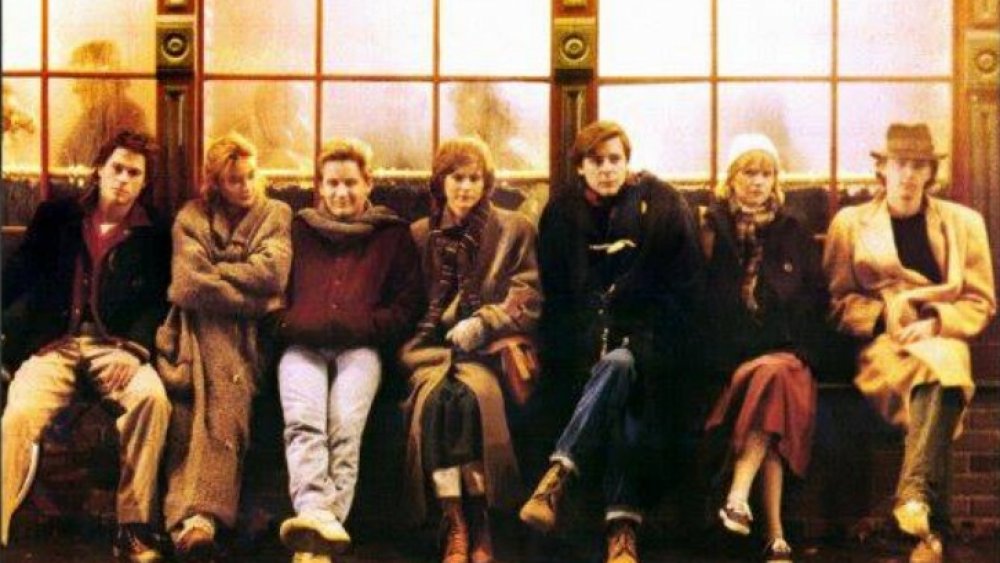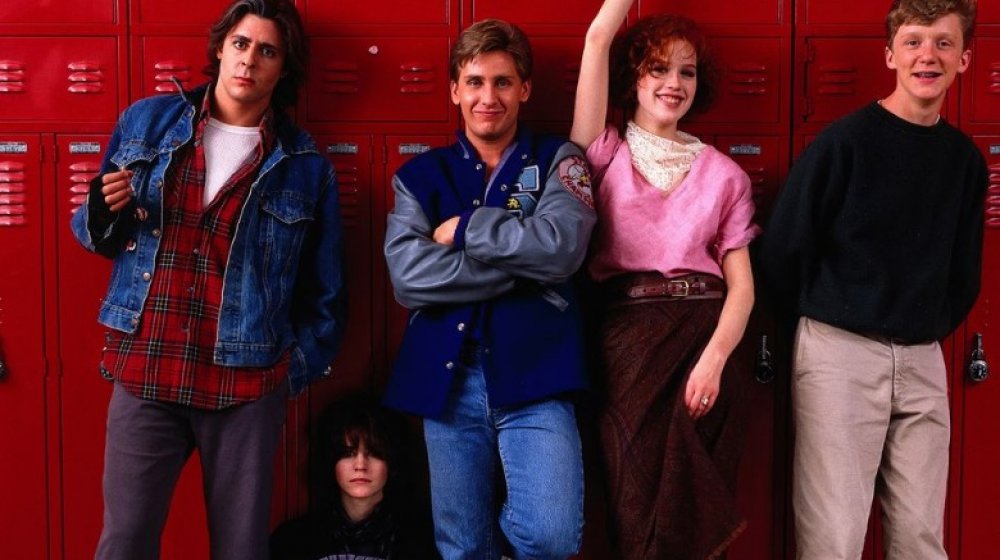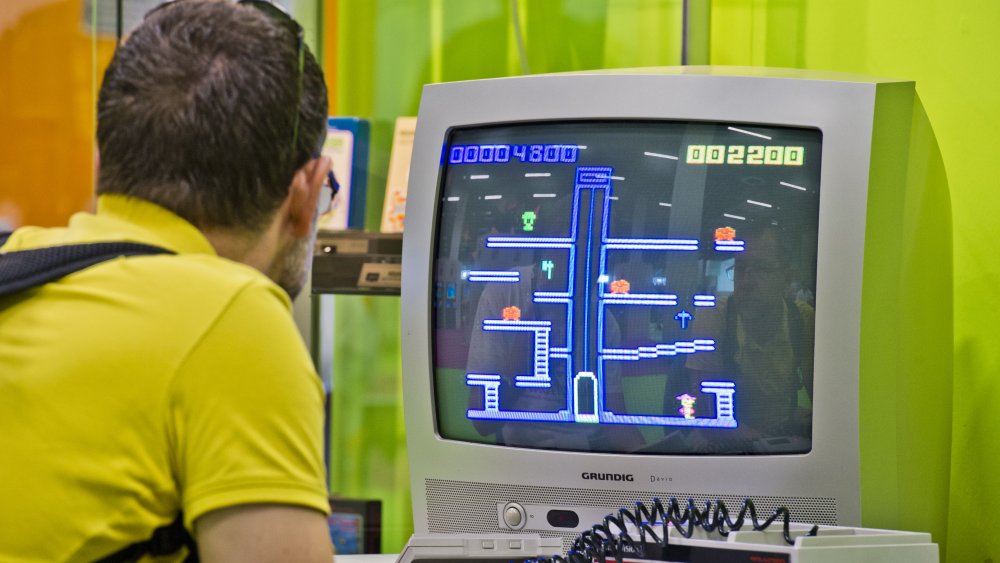The Untold Truth Of Generation X
Generation X is the neglected middle child of the generational family. They're the ones you don't hear from — or about — so much. Instead, it's all "OK Boomer" this and "millennials ruin everything" that. Gen Xers aren't interested in keeping the peace between their battling sibs, however. Instead, they're sitting back with their beer and popcorn, taking in the show.
One thing about Gen X that seems to confuse everyone is the start date. Parade says the first Gen Xers were born in 1965, CNN Business moves this back a year, and Forbes pushes the date out to 1961. In order to clear up any confusion, however, we present to you definitive evidence that proves without a doubt that the last-named date is the correct one. Two words: Brat Pack.
If you belong to a different generational cohort and require further clarification, IMDb defines the Brat Pack as a group of young actors best known for their roles in several 80s teen classics. These movies, including The Breakfast Club and St. Elmo's Fire, may well be the most enduring legacy of Gen X's all-too-brief moment in the spotlight. Of the Brat Pack main eight — Emilio Estevez, Anthony Michael Hall, Rob Lowe, Andrew McCarthy, Demi Moore, Judd Nelson, Molly Ringwald, and Ally Sheedy — only two (Hall and Ringwald) made Parade's cut-off date, while Lowe barely squeaked by CNN's. OK, so Nelson (b. 1959) is a late boomer, but the other brats were all born post '61. Case. Rested.
Gen X movies embodied their angst
Speaking of movies, there is a certain body of work that pretty much defines the entire X generation and speaks to the issues we were dealing with during the 80s and 90s, which was the time period during which Xers came of age. Of course, everything directed by John Hughes is core Gen X: the aforementioned Breakfast Club, Pretty in Pink, Sixteen Candles, Weird Science, Ferris Bueller's Day Off ... where would the 80s (or Molly Ringwald) be without him? Oh, and if you're thinking his stuff is all fluff, think again – the BookSlut blog points out that many of these films deal with the theme of class distinction and the painful divide between Haves and Have Nots.
Other issues Gen X was dealing with, on-screen and in real life, included the tail end of the Cold War (Red Dawn), economic uncertainty leading to downward mobility (Clerks, Slacker), and even the hot-button issue of police violence against people of color some 30 years prior to #BlackLivesMatter (Spike Lee's Do the Right Thing). Oh yeah, and scary future technology (The Terminator, Blade Runner).
Gen X never had it easy
The problem with defining GenX as a culture as well as a cohort lies in the fact that even Gen Xers don't know what they stand for. The Pew Research Center (via CNN Business) found that members of this generation are less likely than either Boomers or Millennials to consider their generation to be unique or special, and they have no clue what their defining characteristics would be.
Hardship, possibly. Well, not Greatest Generation/Great Depression survivor-level suffering, but still, Gen X did have kind of a tough time growing up. Gail Saltz, M.D., associate professor of psychiatry at the NY Presbyterian Hospital Weill-Cornell School of Medicine, told Parade that Xers lived through AIDS, crack epidemics, too many economic downturns to count, and were also the first generation to have both parents working outside the home. As she described Xers, "Many were latch key kids growing up, learned how to fend for themselves early, and have lower expectations in terms of being taken care of. They are noted for a heartiness and ability to soldier on."
Gen X were quarantine champs
Good thing they learned this life lesson early, since adulthood hasn't exactly been a walk in the park for this generation, either. (More like a brisk jog, with a mugger in hot pursuit.) In fact, Fox Business suggests that Generation X may be the first one in memory to be worse off than their parents. Often priced out of home ownership, blocked on one end of the career ladder by non-retiring boomers and crowded by fast-climbing millennials on the other, and in fear that Social Security funds are likely to run out right around the time many Gen Xers are set to retire (via Barron's), is it any wonder this generation is more than a little pessimistic about the American Dream?
Oddly enough, though, recent events finally allowed Gen X to feel somewhat justified in having been early adopters of the "life sucks, and then you die" philosophy. Parade pointed out that Gen X's low expectations made them the undisputed kings and queens of quarantine. One Twitter user summed up the situation by saying, "Glad I'm a #GenX kid. Im using my skills I picked up as a latchkey kid. Making toaster oven snacks, chillin on the couch," while another tweet clarified things even further: "Being a Gen X'er, I mastered the art of staying home and not wanting to be around people many years ago!"
Gen X are the folks who brought us Gen Z
While Millennials and Boomers continue to slug it out, Gen X and Gen Z are able to coexist somewhat more harmoniously. Well, as well as any group of teens/young adults is able to get along with its middle-aged moms and dads, which is to say, often with more eye-rolling and "whatevers" (on both sides) than hugs. At least both generations are able to bond over their (quiet) dislike of the noisier cohorts bracketing them.
So what else do X and Z have in common, besides sounding like an algebra equation? As Corey Seemiller, a professor at Ohio's Wright State University, told Bloomberg, both generations are "autonomous, cynical, [and raised] with looser reins." Gen Z kids, like their Gen X parents, also tend to be pretty pessimistic, but they are also able to roll with the punches, and they're also willing to suck it up and put up with not-so-fulfilling jobs rather than quitting because their feelings get hurt like many of those sensitive (read: entitled) millennials since they've been raised with a hefty dose of reality. Oh, and no expensive avocado toast for today's kids. Like Xers, they're less self-indulgent and more budget-minded, and pretty well prepared to face an uncertain future.




